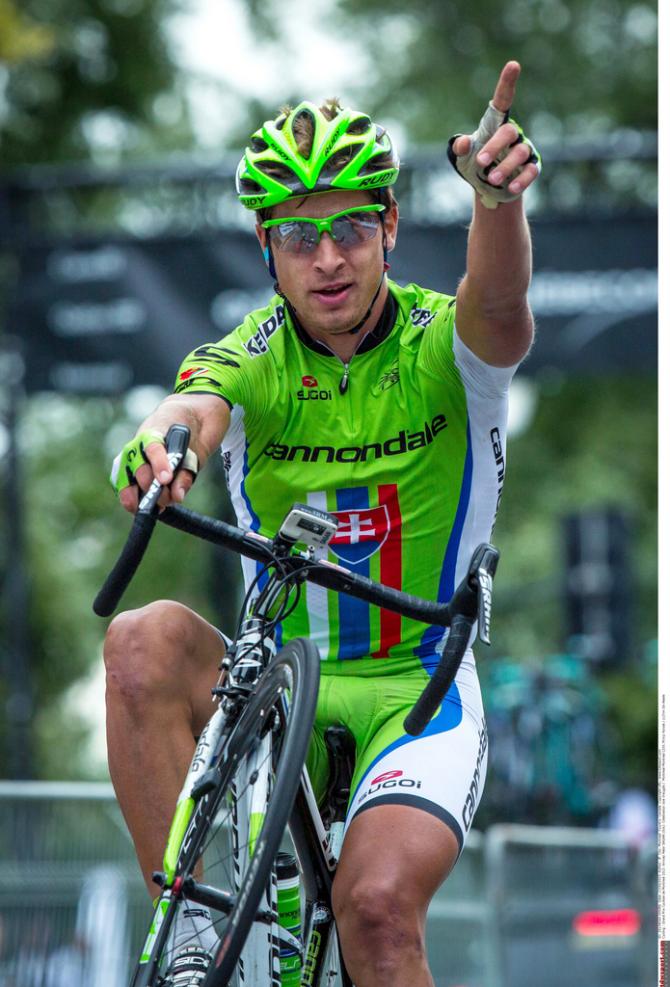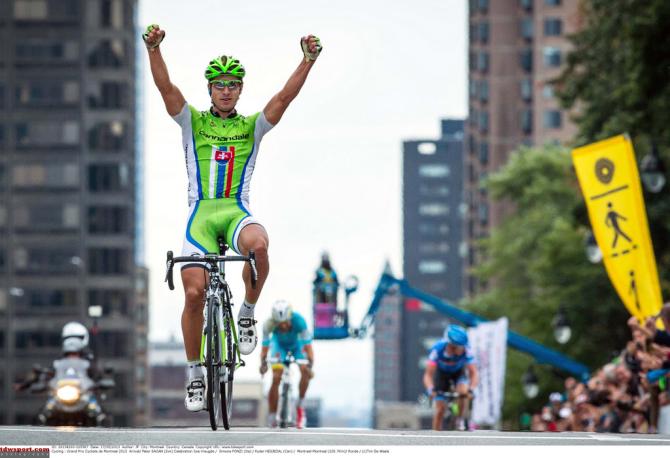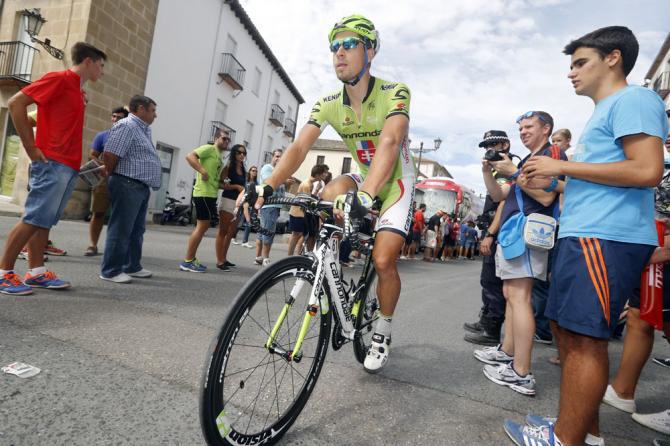Worlds: Will Sagan rescue his season?
State of the nation: Slovakia



Peter Sagan (Slovakia) goes into this weekend’s world championship road race looking to salvage a season that has struggled to live up to his own high standards. After a frustrating string of second places, Sagan will be hoping he can get it right on Sunday.
Ever since the course was announced, Sagan’s name has been on the tip of most people’s tongues. Since the Tour de France, Ponferrada has been Sagan’s sole focus and he decided to leave the Vuelta a España early to ensure his fitness. This Sunday is probably his best chance yet of taking the rainbow stripes. His turn of speed makes him a formidable if he makes it to the line, while his climbing capabilities mean that he’s likely to do so.
Unlike some of his rivals, Sagan will have to do the work himself. He will have the support of his brother Juraj and Velits twins Peter and Martin. While the Velits’ are more than capable of keeping Sagan safe, countries such as Belgium, Spain and the Netherlands come with much more firepower. They will not be able to dictate the race and, realistically, Sagan will have to hold onto their coattails and ride the inevitable onslaught that will come when the peloton hits the circuits.
A game of chess
Sagan’s capabilities are undoubtable and the question lies with Sagan’s tactics. Get those right then there should be no stopping him, but that hasn’t happened of late.
At one time, Sagan seemed infallible. The Slovakian rider could do no wrong and would translate almost every opportunity into victory. Sagan turned professional in 2010, but really announced himself as a future star the following season when he took 17 victories, including three at the Vuelta a España. That number continued to grow, with the 24-year-old taking 22 victories (more than any other rider in 2013).
There is little doubt about Sagan’s supreme talent, his palmarès will attest to that. However, that talent comes with a downside. When he was young, he was an unknown entity, but his rivals now know what to expect. If you go to the line with Sagan, you’re probably going to lose.
Get The Leadout Newsletter
The latest race content, interviews, features, reviews and expert buying guides, direct to your inbox!
Riders will no longer work with the Slovakian, expecting him to do the grunt work, and his tactical naivety – and possibly cockiness - has been highlighted. Tactical errors have seen him lose big races such as Ronde van Vlaanderen and Milan-San Remo. Frustration is setting in, as he misses the big races that many expected him to dominate.
The frustration was probably most apparent at this year’s Tour de France. His run of second places was a record and earned him the green jersey for the third year running, but victory proved illusive. Stage 2 of the Tour de France should have been a no brainer for Sagan, but he played his cards too early and was left floundering when his former teammate Vincenzo Nibali launched an unexpected attack.
A few days later, when the race was heading into Nancy, he decided to demonstrate his prowess by flying off the front with Greg van Avermaet. The attack was nullified and he didn’t have the legs for the sprint, leaving Matteo Trentin to lap up the adulation.
Whether it is Sagan’s propensity to get frustrated with the lack of collaboration from his rivals or his desire to show off his form, he often burns too many matches in the finale and doesn’t have the legs to finish off what are often clear cut chances at victory.
If he can hold onto the better climbers in Ponferrada, the Slovakian needs to consider his options more carefully. A masterfully timed attack in the closing kilometres might do it – like Gent-Wevelgem in 2013 -, or hang in the back and wait for the sprint finish.
Whatever he does, he needs to dedicate himself to it, because winning in Ponferrada will turn around a season that has failed to hit the mark and potentially propel Sagan on even further in 2015.
Born in Ireland to a cycling family and later moved to the Isle of Man, so there was no surprise when I got into the sport. Studied sports journalism at university before going on to do a Masters in sports broadcast. After university I spent three months interning at Eurosport, where I covered the Tour de France. In 2012 I started at Procycling Magazine, before becoming the deputy editor of Procycling Week. I then joined Cyclingnews, in December 2013.